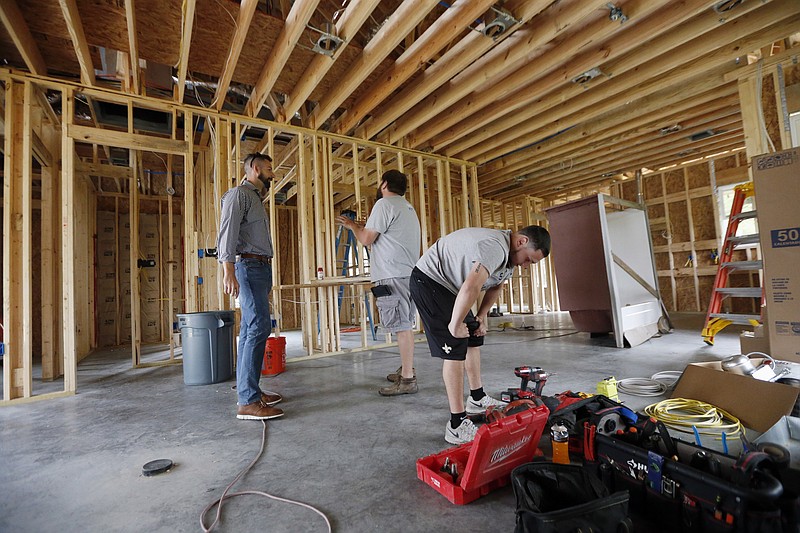Q. I need to find a qualified trustworthy remodeling contractor. What advice may BBB suggest?
A. Whether you are doing repairs, adding on to your home or renovating a room, you may decide you need help with that project you are finally tackling. That's where a contractor comes in.
A contractor is anybody you hire to provide materials and labor to complete a job. Some contractors focus on a specific type of project, like plumbing or tiling or painting, while others will work on any type of project. For larger projects, a general contractor may also serve as a project manager working with other vendors to get all the work done.
Hiring your contractor is one of the most important steps for the project. Hire the right one and you can relax knowing that your project is being handled. Hire the wrong one and you could be facing a wide range of problems from unfinished work to being sued if workers aren't paid.
These are tips to think about when you set out to hire a contractor and will serve you well when hiring anybody to work in your home:
- Research their track record. You can search for a contractor's Business Profile at bbb.org/Chattanooga to see if they are an Accredited Business, get free information on their history of complaints, and read verified Customer Reviews. Also ask for local references and speak with those customers about their experience with the business and the quality of work. If possible, inspect the contractor's work yourself. Ask if the contractor is a member of a professional association that has standards or a code of ethics.
- Ask for multiple quotes. You should always shop around and get at least three quotes from different businesses. Make sure all bids consider the same set of criteria. Remember that the lowest bid may not necessarily be the best quote; if one bid is significantly lower than the others; the contractor may be cutting corners or may not understand your work requirements.
- Get it in writing. Always get estimates in writing and never let any work begin without a written and signed contract. Do not be pressured into signing an agreement before you are ready and make sure you read and understand everything before signing. The contract should include contact information, start and complete dates, a detailed description of the exact work to be done, any material costs, payment arrangements, and warranty information. Specify who is to obtain necessary building permits and who is responsible for clean-up. Make sure all verbal promises are included in the contract. Ask how much work will be subcontracted and ask for information on the subcontractors. Ask questions if you do not understand any part of the contract. Never sign an incomplete or partially blank contract.
- Verify license and insurance. Always be sure that the company you decide to work with has the necessary licenses and insurance to work in your county/city. BBB serving Southeast Tennessee and Northwest Georgia can help. Once you have your contractor's insurance information, you may consider calling the carrier to confirm appropriate coverage for worker's compensation, property damage, and personal liability in case of accidents.
- Confirm building permits. Your contractor must have the correct permits before starting your project. They will usually obtain the permits, but you will probably pay for them. That should be detailed in your contract.
- Inquire about a lien waiver. A lien waiver is a statement from your contractor that says all suppliers and subcontractors have been paid for their work.
- Think about future service issues. Make sure you are aware of your warranty coverage and how to deal with service issues.
- Arrange a payment schedule. Never pay in full up front. Stage your payments so your final payment is not due until the work is complete and you have fully inspected it. Do not pay cash; make sure your check is written to a company, not an individual, or that you use a credit card.
- Get a receipt. Request a receipt marked "Paid in Full" when the job is completed and your final payment is made.
- Keep your contract. Hold on to your contract for future reference or if any questions arise after the work is complete.
Jim Winsett is president of the Better Business Bureau in Chattanooga.

